第84章 IV(17)
The experience of the profession must, I think, run parallel with that of the wisest of its individual members. Each time a plan of treatment or a particular remedy comes up for trial, it is submitted to a sharper scrutiny. When Cullen wrote his Materia Medica, he had seriously to assail the practice of giving burnt toad, which was still countenanced by at least one medical authority of note. I have read recently in some medical journal, that an American practitioner, whose name is known to the country, is prescribing the hoof of a horse for epilepsy. It was doubtless suggested by that old fancy of wearing a portion of elk's hoof hung round the neck or in a ring, for this disease. But it is hard to persuade reasonable people to swallow the abominations of a former period. The evidence which satisfied Fernelius will not serve one of our hospital physicians.
In this way those articles of the Materia Medica which had nothing but loathsomeness to recommend them have been gradually dropped, and are not like to obtain any general favor again with civilized communities. The next culprits to be tried are the poisons. I have never been in the least sceptical as to the utility of some of them, when properly employed. Though I believe that at present, taking the world at large, and leaving out a few powerful agents of such immense value that they rank next to food in importance, the poisons prescribed for disease do more hurt than good, I have no doubt, and never professed to have any, that they do much good in prudent and instructed hands. But I am very willing to confess a great jealousy of many agents, and I could almost wish to see the Materia Medica so classed as to call suspicion upon certain ones among them.
Thus the alien elements, those which do not properly enter into the composition of any living tissue, are the most to be suspected,-- mercury, lead, antimony, silver, and the rest, for the reasons I have before mentioned. Even iodine, which, as it is found in certain plants, seems less remote from the animal tissues, gives unequivocal proofs from time to time that it is hostile to some portions of the glandular system.
There is, of course, less prima facie objection to those agents which consist of assimilable elements, such as are found making a part of healthy tissues. These are divisible into three classes,--foods, poisons, and inert, mostly because insoluble, substances. The food of one animal or of one human being is sometimes poison to another, and vice versa; inert substances may act mechanically, so as to produce the effect of poisons; but this division holds exactly enough for our purpose.
Strictly speaking, every poison consisting of assimilable elements may be considered as unwholesome ,food. It is rejected by the stomach, or it produces diarrhoea, or it causes vertigo or disturbance of the heart's action, or some other symptom for which the subject of it would consult the physician, if it came on from any other cause than taking it under the name of medicine. Yet portions of this unwholesome food which we call medicine, we have reason to believe, are assimilated; thus, castor-oil appears to be partially digested by infants, so that they require large doses to affect them medicinally. Even that deadliest of poisons, hydrocyanic acid, is probably assimilated, and helps to make living tissue, if it do not kill the patient, for the assimilable elements which it contains, given in the separate forms of amygdalin and emulsin, produce no disturbance, unless, as in Bernard's experiments, they are suffered to meet in the digestive organs. A medicine consisting of assimilable substances being then simply unwholesome food, we understand what is meant by those cumulative effects of such remedies often observed, as in the case of digitalis and strychnia. They are precisely similar to the cumulative effects of a salt diet in producing scurvy, or of spurred rye in producing dry gangrene. As the effects of such substances are a violence to the organs, we should exercise the same caution with regard to their use that we would exercise about any other kind of poisonous food,--partridges at certain seasons, for instance. Even where these poisonous kinds of food seem to be useful, we should still regard them with great jealousy. Digitalis lowers the pulse in febrile conditions.
Veratrum viride does the same thing. How do we know that a rapid pulse is not a normal adjustment of nature to the condition it accompanies? Digitalis has gone out of favor; how sure are we that Veratrum viride will not be found to do more harm than good in a case of internal inflammation, taking the whole course of the disease into consideration? Think of the change of opinion with regard to the use of opium in delirium tremens (which you remember is sometimes called delirium vigilans), where it seemed so obviously indicated, since the publication of Dr. Ware's admirable essay. I respect the evidence of my contemporaries, but I cannot forget the sayings of the Father of medicine,--Ars longa, judicium diffcile.
I am not presuming to express an opinion concerning Veratrum viride, which was little heard of when I was still practising medicine. I am only appealing to that higher court of experience which sits in judgment on all decisions of the lower medical tribunals, and which requires more than one generation for its final verdict.